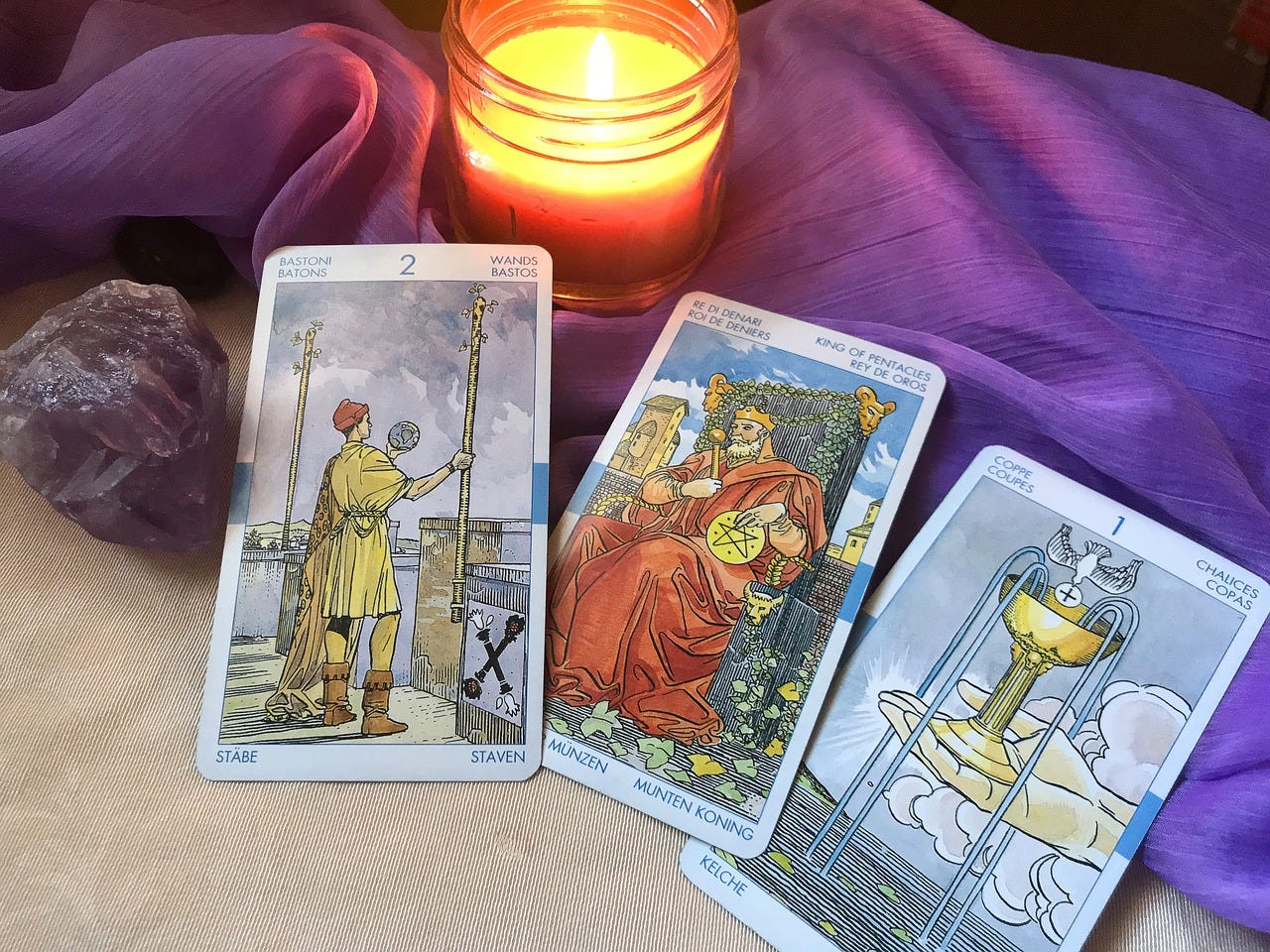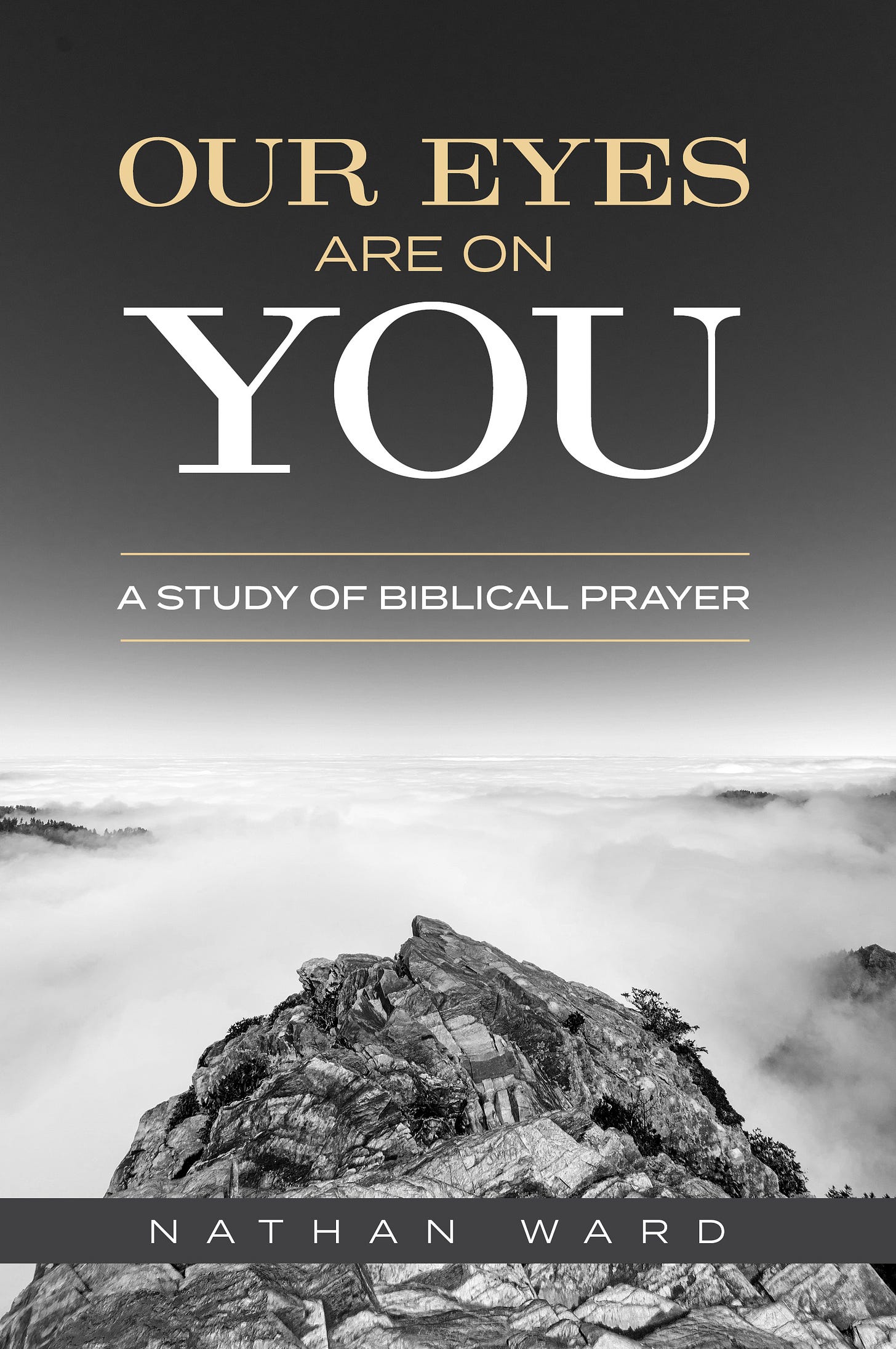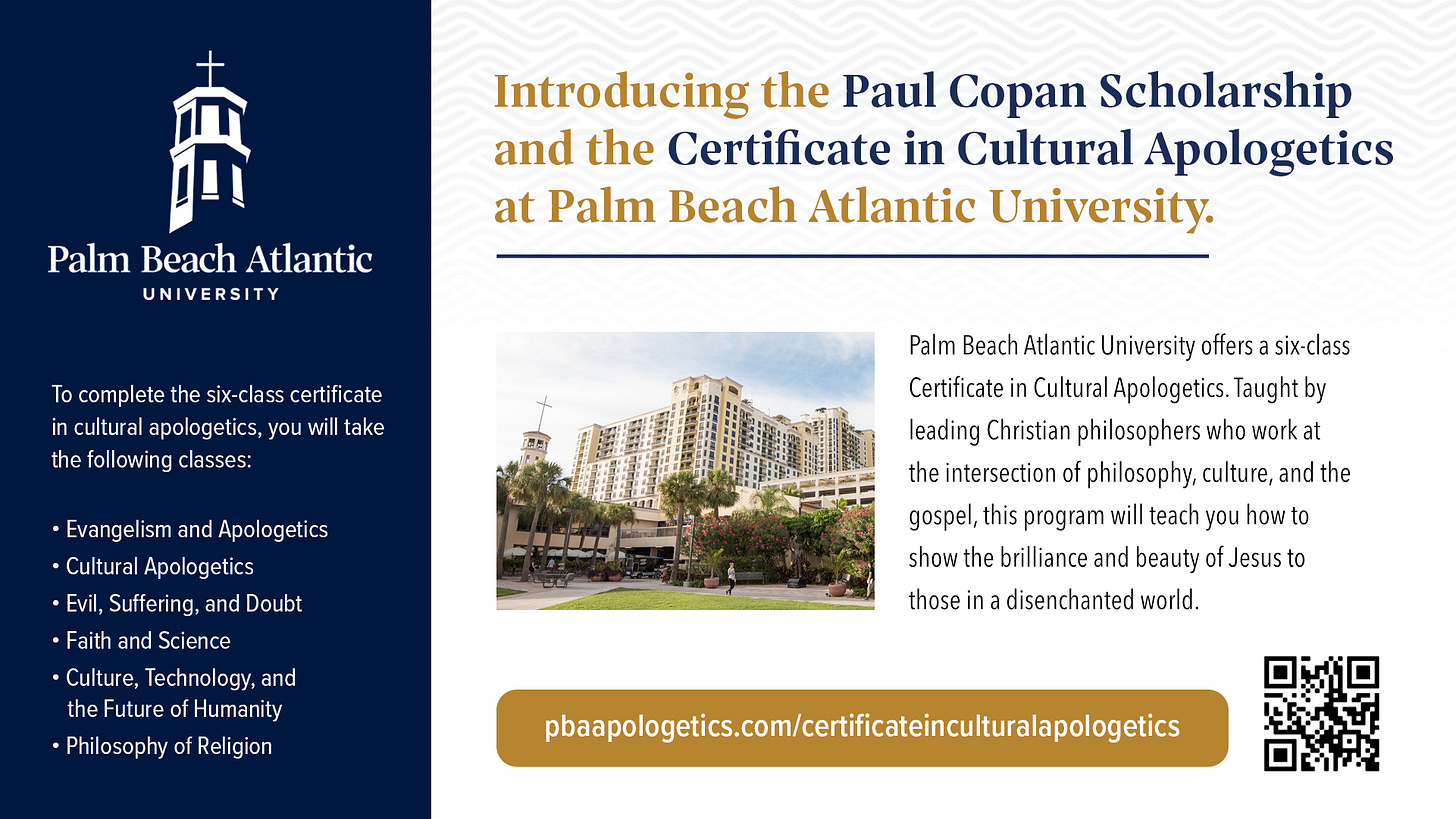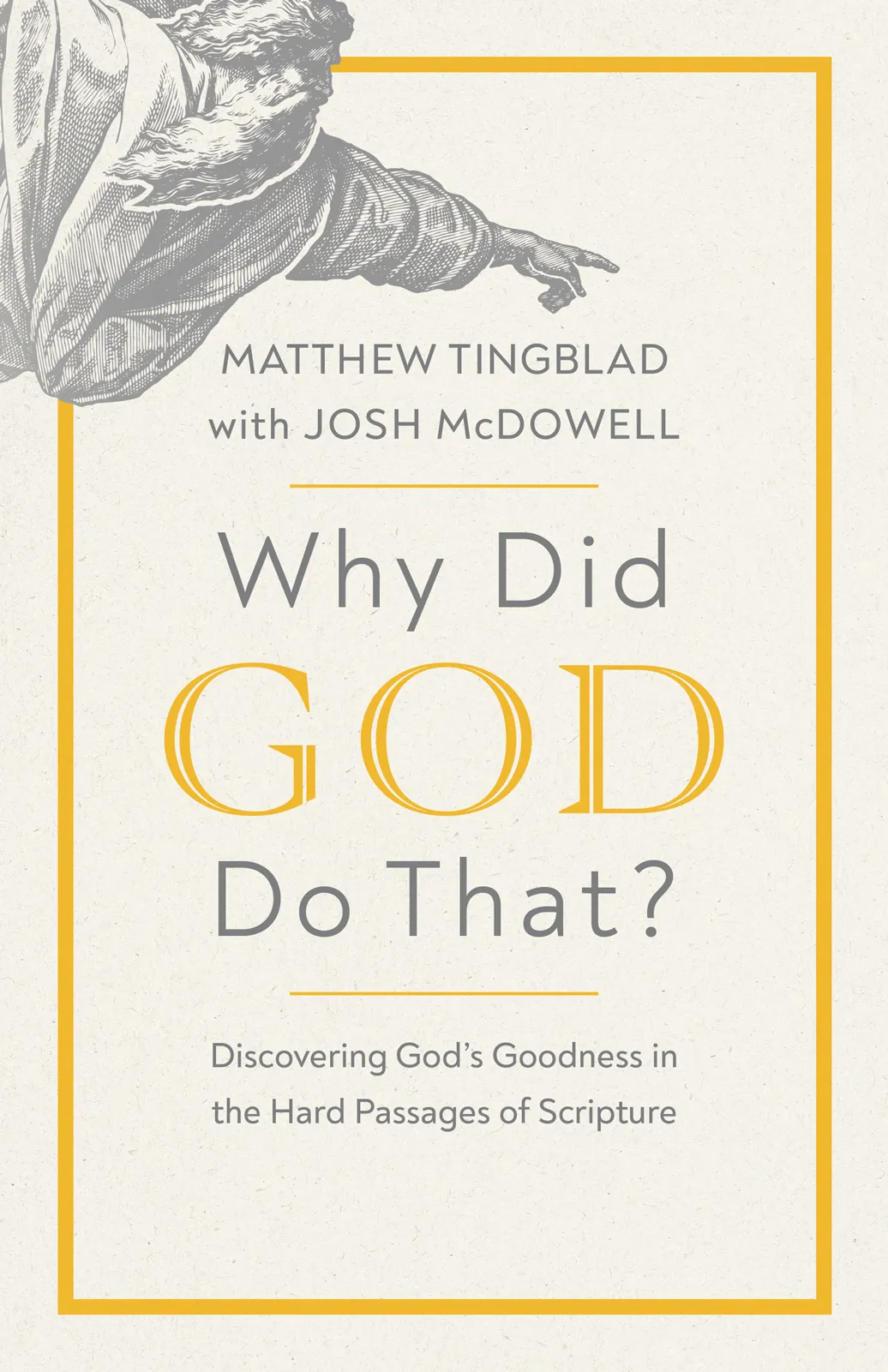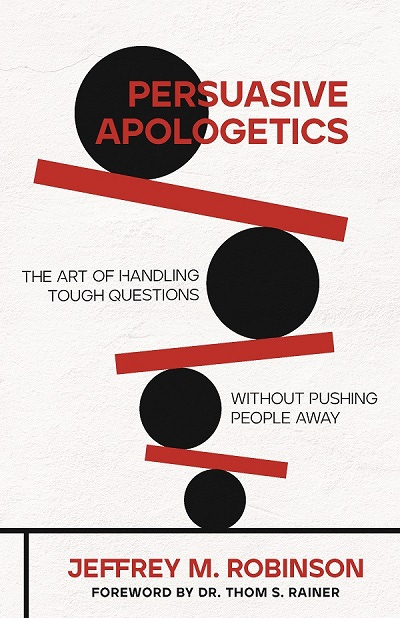Christians hold various opinions about Halloween, but one thing it certainly points to is the human fascination with the supernatural. Although many in the West pride themselves on being secular and scientific, everyone has an innate curiosity about what may lie beyond the world we experience with our five senses. History shows humans have always acknowledged the existence of the supernatural and engaged in practices to worship or manipulate it.
This is unsurprising in light of the fact that humans are spiritual beings (e.g., Matt. 10:28), and that we interact with the spiritual realm—for example, by entering into a relationship with God, who is also spirit (John 4:24). The author of Ecclesiastes tells us that God has “set eternity in the human heart” (Eccles. 3:11), and Augustine echoes this when he writes, “You have made us for yourself, O Lord, and our heart is restless until it rests in you.”1
Although humankind should seek transcendence in God, because of the fall, many seek it elsewhere. If one is coming into contact with the spiritual realm apart from God, they are interacting with the only other spiritual reality that exists, that of Satan and his demons—the world of the occult.
What C. S. Lewis perceptively wrote about demons also applies to the occult in general: “There are two equal and opposite errors into which our race can fall about the devils. One is to disbelieve in their existence. The other is to believe, and to feel an excessive and unhealthy interest in them.”2 In the same way, it is a mistake either to deny or underestimate the reality of the occult, or to spend a great deal of time and energy dwelling on it (unless one is called to a ministry that requires deeper engagement). Yet, since the occult is prevalent in the world, we should be aware, at least, of the main forms that it takes. As Paul wrote, “we are not unaware of [Satan’s] schemes” (2 Corinthians 2:11).
What Is the Occult and How Widespread Is It in the US?
The occult can be defined as “[Phenomena], events, and religious practices engaging a practitioner in a realm of the supernatural that is rooted in things secret or hidden.”3 More specifically, “The term frequently refers to certain practices (occult ‘arts’) that include divination, fortunetelling, spiritism (necromancy), and magic.”4
The US government doesn’t keep detailed records on religious affiliation, so precise numbers of occult-oriented religions aren’t available. But the Pew Research Center’s 2014 Religious Landscape Study estimated that 0.4% of the US population, about 1.3 million people, subscribe to a “New Age” religion, with most of these identifying as Wiccan or Pagan. By comparison, the Presbyterian Church (USA) has about 1.2 million members.5
In 2007, an executive with Barnes & Noble estimated the American “Pagan Buying Audience” as numbering 10 million people.6
What Are Some Examples of Occult Groups and Practices in the US?
Since the largest occult-oriented groups cited in the Pew survey above consist of New Age and Wiccan or Pagan adherents, we’ll examine the beliefs of those groups below, followed by a brief discussion of some of the most common occult practices. There is a tremendously diverse spectrum of beliefs among both New Agers and Pagans/Wiccans, so the following survey attempts to identify the beliefs most commonly shared by these respective groups.7
New Age Movement
The New Age movement is a “loosely structured network of individuals and organizations who share a vision of a new age of enlightenment and harmony . . . and who subscribe to a common ‘worldview.’”8 As with Wiccans, there is a vast array of beliefs among New Agers (though many don’t necessarily identify with this label). Despite the diversity of beliefs, there are some commonalities, including the following.
An emphasis on personal experience and mysticism rather than dogma.
A belief in monism (all reality is one) or pantheism (everything is God).
Adoption of beliefs from a variety of world religions and/or mystical traditions.
Rejection of the idea that any single religion or belief system is exclusively true.
Humans are divine and don’t need salvation, but enlightenment, which involves embracing one’s true divine identity.
A belief in the sacredness of the earth, which is sometimes viewed as a living organism.
Belief that humans can bring about a utopia through enlightenment and personal transformation.
There are various organizations devoted to New Age beliefs, but most adherents engage in spiritual practices alone, or with a small group. Popular practices include astrology, the use of crystals (for meditation or healing), the pursuit of altered states of consciousness (sometimes using hallucinogenic drugs), attempting to interact with spiritual beings (through mediums or channeling), and the use of psychic powers to gain knowledge beyond the five senses.
Paganism/Wicca
Paganism is an umbrella term that encompasses modern attempts to revive pre-Christian religions (such as Greek, Roman, and Germanic), but mostly consists of those who identify as Wiccans (witches).9 There is no centralized Wiccan teaching authority, or set of beliefs that all adherents agree to, but the following are generally applicable.
An emphasis on practice and personal experience rather than dogma.
Belief in gods and goddesses, or pantheism (everything is God), or panentheism (everything is part of God), or animism (everything possesses a spiritual essence), or a combination of these.
Most Wiccans deny the existence of Satan.
Humans are basically good and divine, or potentially divine. Sin as defined by Christianity does not exist, but one can be in disharmony with oneself, others, or supernatural beings. Since there is no sin, salvation isn’t necessary.
All living things are sacred.
Magic (sometimes spelled with a “k” [magick] to distinguish it from tricks performed by illusionists) can be used to bring about change in people and the world, and can be used for both good and evil purposes.
Many Wiccans believe in some form of reincarnation.
Many Wiccans celebrate eight Sabbats (festivals) throughout the year, and perform rituals either privately or with other Wiccans. Some Wiccans meet in small, autonomous groups called covens.
Of these two groups, New Age beliefs are far more popular and prevalent in the US. Many of these ideas have taken root in popular culture and are promoted by celebrities, movies and TV shows, music, and bestselling books.
Practices
Necromancy
Necromancy refers to the attempt to contact the spirits of the dead in order to obtain otherwise hidden knowledge, or to communicate with deceased relatives or friends, often for the purpose of emotional comfort or closure. Mediums claim the ability to act as a bridge between the living and the dead, and the attempt to contact spirits is sometimes called a séance (from the French word for “session”).
Divination
Divination is the attempt to gain knowledge of future events or other hidden knowledge by interpreting signs, contacting spiritual entities, or through supernatural powers. Divination has been practiced throughout human history, and is still prevalent today. Modern forms include the use of tarot cards, psychic readings, astrology, palm reading, and Ouija boards.
Magic
Magic can be defined as the use of rituals or actions performed for the purpose of manipulating natural or supernatural forces or beings. Both necromancy and divination can be considered forms of magic, as well as the casting of spells, which often involve incantations, physical rituals, and the use of herbs, potions, or amulets.10
A Christian Response
Space prohibits a detailed response to each of the beliefs and practices listed above, but the following comments briefly address some of the big-picture issues raised by the occult, along with most of the practices described above.11
First, occult beliefs and activities are an attempt to circumvent God’s authority and go beyond the revelation provided in Scripture. This temptation is as old as humankind itself and was precisely what Satan offered Adam and Eve in the garden. Satan insisted that there was knowledge to be had that God was withholding, and that gaining this knowledge would elevate the human couple to a godlike status (Gen. 3).
In this light, it’s not surprising that Paul refers to false teachings as “things taught by demons” and that some who abandon the faith “follow deceiving spirits” (1 Tim. 4:1). Much of Satan’s activity in the world involves producing and disseminating ideas that contradict or distort God’s revelation.
The occult is also a form of idolatry—giving ultimate allegiance to someone or something other than God. Whether it’s the Mother Goddess worshiped by some Wiccans, or a deified self pursued by New Agers, all occult belief systems replace the Creator who has revealed himself in Scripture with some type of counterfeit deity.
In addition, all of the categories of occult activities noted above (necromancy, divination, magic) are expressly prohibited in Scripture. As the Lord warned the Israelites before they entered the promised land:
Let no one be found among you who sacrifices their son or daughter in the fire, who practices divination or sorcery, interprets omens, engages in witchcraft, or casts spells, or who is a medium or spiritist or who consults the dead. Anyone who does these things is detestable to the Lord; because of these same detestable practices the Lord your God will drive out those nations before you. (Deut. 18:10-12)
We are all tempted to try to discover what will happen in the future, or to gain other knowledge not attainable through natural means. But as the late biblical scholar Merrill Unger pointed out,
there is everything wrong in prying into the future, which God has not revealed and, for our own welfare, does not want us to know. Such knowledge is contrary to God’s Word and will, but it is the kind of knowledge that Satan and demons give. . . . Although God has revealed His general plan for the future for both the saved and the unsaved, it is not normally His purpose for us to know the specifics of that plan or the details of individual lives.12
Thus, Moses told the people of Israel, “The secret things belong to the Lord our God, but the things revealed belong to us and to our children forever” (Deut. 29:29).
Finally, participation in occult activities opens a person up to demonic influence. This is true for both Christians and non-Christians. Paul warned the Corinthians that “the sacrifices of pagans are offered to demons, not to God, and I do not want you to be participants with demons. You cannot drink the cup of the Lord and the cup of demons too; you cannot have a part in both the Lord’s table and the table of demons” (1 Cor. 10:20-21).
The following true stories illustrate this danger.
Heath Adamson’s Story
Heath Adamson, who is now a leader in his Christian denomination, became interested in the occult as a young boy. “What started out as intrigue and entertainment,” he writes, “quickly led to a lifestyle of encounter with the stuff of Hollywood lore. I remember watching a chair slide across the floor and a candle floating off the coffee table.” He continues, “I had night terrors so bad, so horrific, I was tormented for years. In junior high, the anxiety produced ulcers. Specialists couldn’t confirm what was wrong. I felt trapped, breathless, and alone.”
In high school, he had “regular encounters with the demonic realm, became addicted to numerous drugs, looked like a human skeleton, and lived life in quiet desperation.”
A classmate invited Heath to church, and afterward at home he felt God’s presence for the first time. “I remember the warm tears falling down my face. Crying wasn’t something I did. It was almost as if the sky opened up and, for the first time in my life, I sensed real and pure love.”
Heath began to pray regularly, and continued to attend church services with his classmate. One Wednesday evening he responded to an invitation to receive Christ, and “[m]y body was supernaturally and instantaneously healed. My substance addictions vanished. It’s almost as if I met myself for the first time.” Like many others, Heath found deliverance from the occult through Jesus Christ.13
The Minister and His Sister
The late Christian apologist Walter Martin relates meeting a Christian minister and his wife in New York after one of Martin’s lectures. The minister shared with Martin that he had come from a family of spiritists who practiced mediumship and held séances. The minister had come to Christ many years ago, but his sister was still involved and frequently used a Ouija board to communicate with spirits. The minister was concerned about his sister, and one night he and his wife decided to confront her.
In an attempt to show his sister that the Ouija board was evil, he began asking it questions. “What do you feel toward me?” he asked the board, which then spelled out the answer “H-A-T-E.” “What do you think of the Bible?” he asked. The board replied with an obscenity. With that, the minister stood up and exclaimed, “I’ll have no more to do with this. It’s devilish,” and threw his Bible onto the middle of the board. He recounted to Martin what happened next:
At that moment, the board levitated off the table and flipped the Bible into the air with such force that it flew across the room and hit the wall. My sister and my wife screamed.
As I stood there looking at it, something smashed me in my stomach and knocked me to the floor. I was doubled over—breathless—with my head between my knees, and the only thing I could gasp was, “Jesus, Jesus, Jesus. Help!”
But I was lying on the floor in such a convincing position that my wife and sister came over to help me. When we pulled up my shirt, there was a red welt the size of a fist over my solar plexus! At that juncture, my sister recognized that I had been hit—but by nothing visible in that room. The next thing I knew, we were all having a prayer meeting. My sister came out of the occult to Christ, and the Ouija board was splintered and burned.14
Thus, the occult should never be taken lightly, even by Christians.
Deliverance from the Occult
The following six steps are crucial for anyone who desires to break free from the occult.15
1. Receive Christ as Your Lord and Savior
The first step in departing from the darkness and entering the light is to be born again into God’s kingdom through Jesus’ sacrificial death on the cross for your sins. Those who come to Christ are “called . . . out of darkness into [God’s] wonderful light” (1 Peter 2:9). One of the reasons Christ died was “so that by his death he might break the power of him who holds the power of death—that is, the devil—and free those who all their lives were held in slavery by their fear of death” (Heb. 2:14-15).
2. Confess the Sin of Involvement in the Occult
Scripture declares that “If we confess our sins, [God] is faithful and just and will forgive us our sins and purify us from all unrighteousness” (1 John 1:9).
3. Destroy All Occult Objects
The book of Acts describes how many who had practiced sorcery in the city of Ephesus came to Christ and “brought their scrolls together and burned them publicly” (Acts 19:18-19). “Having occult items around such as game boards, cards, and statues may provide a source of temptation to return. Removing all such objects helps avoid facing that temptation and dealing with memories.”16
4. Break Off All Occult Associations
Communication with spirits (which in reality are demons) must cease, and you must no longer associate with friends or others who remain involved in the occult. Seek out new friends who are mature Christians who can help you grow in your relationship with Christ, and find a Bible-believing church where you can worship and serve.
5. Immerse Yourself in God’s Word
As Paul instructed the Christians in Rome, “Do not conform to the pattern of this world, but be transformed by the renewing of your mind. Then you will be able to test and approve what God’s will is—his good, pleasing and perfect will” (Romans 12:2). Our minds are transformed as we read, study, meditate on, and memorize God’s Word. Scripture is also the “sword of the Spirit” by which we repel Satan’s attacks (Eph. 6:17; see Jesus’ example of doing this in Matt. 4:1-11).
6. If Necessary, Seek Additional Help
If you find yourself struggling even after following the steps above, find a Christian counselor or minister to talk to, especially someone who has experience helping people formerly involved in the occult.
Notes
Confessions, 1.1.
C. S. Lewis, The Screwtape Letters (San Francisco: HarperOne, 2001), ix.
Larry A. Nichols, George A. Mather, and Alvin J. Schmidt, Encyclopedic Dictionary of Cults, Sects, and World Religions (Grand Rapids, MI: Zondervan, 2006), 428.
Ronald Enroth, “Occult,” in Evangelical Dictionary of Theology, ed. Daniel J. Treier and Walter A. Elwell (Grand Rapids, MI: Baker Academic, 2017), 608.
Cited in Iqbal Ahmed, “The Many Faces of the Occult,” The Atlantic Selects, December 23, 2019, https://www.theatlantic.com/video/index/604084/pagans/. I’ve updated the estimate for the membership of the PCUSA, and tried to use a slightly more precise figure for the number of New Age adherents.
Patheos, “How Many Pagans Are There?”, https://www.patheos.com/library/answers-to-frequently-asked-religion-questions/how-many-pagans-are-there.
I’m indebted to the following sources for the description of beliefs and practices: Walter Martin, Jill Martin Rische, and Kurt Van Gorden, The Kingdom of the Occult, 5th ed. (Nashville: Thomas Nelson, 2008); Ron Rhodes, New Age Movement, Zondervan Guide to Cults and Religious Movements (Grand Rapids: Zondervan, 2016); Craig Hawkins, Goddess Worship, Witchcraft, and Neo-Paganism, Zondervan Guide to Cults and Religious Movements (Grand Rapids: Zondervan, 2016).
Ron Rhodes, New Age Movement, Zondervan Guide to Cults and Religious Movements (Grand Rapids: Zondervan, 2016), 9-10.
Sabina Magliocco, “Neopaganism,” in The Cambridge Companion to New Religious Movements, edited by Olav Hammer and Mikael Rothstein (Cambridge: Cambridge University Press, 2012), 150–66.
“Magic (Supernatural),” in Wikipedia, https://en.wikipedia.org/w/index.php?title=Magic_(supernatural)&oldid=1110907032.
For a more in-depth critique, see the volumes listed in footnote 7.
Merrill F. Unger, What Demons Can Do to Saints (Chicago, IL: Moody Publishers, 1991), 26.
Heath Adamson, “Her Prayers Helped Pull Me Out of Occult-Fueled Madness,” ChristianityToday.com, https://www.christianitytoday.com/ct/2018/november/heath-adamson-prayers-helped-pull-occult-madness.html.
Martin, Rische, and Gorden, The Kingdom of the Occult, 5th ed. (Nashville: Thomas Nelson, 2008), 9-10.
This list is a modified version of the one found here: Patrick Zukeran, “The World of the Occult: A Christian Worldview Perspective,” Probe Ministries (blog), May 27, 2003, https://probe.org/the-world-of-the-occult/.
Ibid.
*This article originally appeared at Summit Ministries.
— Christopher L. Reese (MDiv, ThM) is a writer, editor, and journalist. He is the founder and editor of The Worldview Bulletin and cofounder of the Christian Apologetics Alliance. He is a general editor of the Dictionary of Christianity and Science (Zondervan, 2017) and Three Views on Christianity and Science (Zondervan, 2021) and his work has appeared in Christianity Today, Bible Gateway, Beliefnet, Summit Ministries, and other sites.
[sponsored]
Our Eyes Are On You: A Study of Biblical Prayer
Our Eyes Are On You: A Study of Biblical Prayer is an examination of the context and contents of 35 Biblical prayers to make connections to our lives, informing us about prayer, the things about which we should pray, and the God to whom we pray. The prayers covered include those of Abraham, Moses, Hannah, David, Jehoshaphat, Hezekiah, Jeremiah, Habakkuk, Jesus, the Apostles, Paul, and many others.
“This book expertly guides us on a tour of prayers in the Bible so that we better understand the wondrous mystery of prayer but also meaningfully enhances our own life of prayer. It is a marvelous gift that I will read and re-read.”
— David E. Garland, Professor Emeritus of Christians Scriptures, George W. Truett Theological Seminary
“This is a beautifully clear and profound and wide-ranging and thoughtful and illuminating book on prayer in the Scriptures. The people who read it and put its insights into practice are going to have their relationship with God transformed.”
— John Goldingay, Senior Professor of Old Testament, Fuller Theological Seminary
Find Our Eyes Are on You at Amazon, Barnes & Noble, and other major booksellers.
Learn more at https://pbaapologetics.com/certificateinculturalapologetics.
Why Did God Do That?
Discovering God’s Goodness in the Hard Passages of Scripture
Violent wars, harsh laws, pronounced judgments. Christianity proclaims God’s goodness, yet the Bible is filled with passages that seem to paint a different picture. On the surface, such depictions can hinder our confidence in God’s goodness. But when we’re willing to look deeper, we discover a consistent purpose behind everything God does—and that he is greater than we could ever imagine.
Alongside bestselling author Josh McDowell, Matthew Tingblad invites you to discover how a good God has good reasons for his challenging actions in the Bible. Throughout, you will uncover the reality of God’s consistent motives and purposes: holiness, justice, and radical mercy.
Whether you have your own questions about God or are ministering to those who do, Matthew and Josh will guide you through these difficult passages and ideas, all the while pointing to God’s power and redeeming love.
“Violence in the Old Testament. Misogyny. Hell. These are topics many Christians would shy away from or try to dismiss with a quick answer. Instead, Tingblad and McDowell acknowledge the real challenge these topics pose—and yet boldly proclaim that Christianity has the resources to demonstrate God’s goodness. This is a nuanced, well-balanced, and exceedingly strong case for our good God.”
— Lee Strobel, New York Times bestselling author and founding director of the Lee Strobel Center for Evangelism and Applied Apologetics, Colorado Christian University
“I am thrilled about the release of Tingblad and McDowell’s stunning book Why Did God Do That? While well organized and accessible, this book is deep, thorough, and carefully researched. . . . Tingblad and McDowell argue convincingly not that God is good in spite of these texts; rather, he is good within them. There is no book like this one. I could not recommend it more highly.”
— J.P. Moreland, Distinguished Professor of Philosophy, Talbot School of Theology, Biola University
See our recent excerpt from Why Did God Do That? here.
Find Why Did God Do That? at Amazon, Harvest House, and other major booksellers.
Persuasive Apologetics
The Art of Handling Tough Questions Without Pushing People Away
Loving our neighbors well includes engaging in robust conversations that destabilize false belief systems. In addressing the mind, will, and emotions of actual, complex people, Christian believers must develop various approaches to meet diverse personalities and multiple connection points.
In Persuasive Apologetics, pastor and professor Jeffrey M. Robinson explores what's below the surface of intellectual-sounding objections to Christianity. He shows what it means to contend for the truth through real-life examples of communicating with those who hold differing beliefs. Robinson covers foundational and practical issues, such as
the importance of demeanor in being persuasive
various apologetic approaches
the influence of worldview presuppositions
using undercutting defeaters to expose faulty thinking
causes of nonbelief
the historical Jesus compared with figureheads of competing belief systems
the hope that Jesus offers.
Persuasive Apologetics will challenge serious seekers to peel back the layers of skeptical arguments and equip committed Christians looking to hone their apologetics skills.
“Consider this volume a one-size-fits-all text, which is not surprising considering that Jeff Robinson is a pastor with an earned PhD. Accordingly, this book moves from why apologetics is needed to worldviews, methodology, particular tactics, answers to world religions, the problem of evil, and the believer’s final hope of eternity. After all, if Christianity is true, it ought to be applied in very practical ways! Check it out―highly recommended!”
— Gary R. Habermas, Distinguished Research Professor, Liberty University, Lynchburg, VA
“This incredible book is the perfect balance of mind and heart. Jeff Robinson, a pastor of a church in South Florida where sixty-six first-generation nations are represented, knows how to connect with the world and culture. He has a heart to love people and to reach them. And he has the academic prowess to know how to guide challenging biblical conversations. I commend highly his book.”
— Thom S. Rainer, Founder and CEO, Church Answers, Author of I Am a Church Member
Find Persuasive Apologetics at Amazon and other major booksellers.
Advertise in The Worldview Bulletin
Do you have a ministry, book, course, conference, or product you’d like to promote to 6,793 Worldview Bulletin readers? Click here to learn how. We’re currently booking for October-November.
Support The Worldview Bulletin
Your support makes The Worldview Bulletin possible! We couldn’t do this without the support of you, our readers. We would be grateful for your help in any of the following ways, which allows us to continue providing our readers and the world with the very best in Christian philosophy, apologetics, and defense of the Christian worldview.
Subscribe to receive regular articles from our team only available to paid subscribers, and gain access to our full archive of scores of past articles and new videos.
Give a gift subscription to a family member or friend who would benefit, or subscribe a group of four or more and save 25%.
Make a one-time or recurring donation.
“Staffed by a very respected and biblically faithful group of Evangelical scholars, The Worldview Bulletin provides all of us with timely, relevant, and Christian-worldview analysis of, and response to, the tough issues of our day. I love these folks and thank God for their work in this effort.”
— JP Moreland, distinguished professor of philosophy, Talbot School of Theology, Biola University, author of Scientism and Secularism: Learning to Respond to a Dangerous Ideology (Crossway)
“The Worldview Bulletin is a must-have resource for everyone who’s committed to spreading and defending the faith. It’s timely, always relevant, frequently eye-opening, and it never fails to encourage, inspire, and equip.”
— Lee Strobel, New York Times bestselling author of more than forty books and founding director of the Lee Strobel Center for Evangelism and Applied Apologetics
“I find The Worldview Bulletin very stimulating and would encourage all thinking Christians to read it.”
— John Lennox, emeritus professor of mathematics, University of Oxford, emeritus fellow in mathematics and philosophy of science, Green Templeton College, author of Cosmic Chemistry: Do God and Science Mix? (Lion)
“The Worldview Bulletin is a wonderful resource for the church. It’s timely and helpful.” — Sean McDowell, associate professor in the Christian Apologetics program at Talbot School of Theology and author of The Fate of the Apostles: Examining the Martyrdom Accounts of the Closest Followers of Jesus (Routledge)
“Are you looking for a way to defend your Christian worldview? If so, look no further. At The Worldview Bulletin you’ll encounter world-leading scholars dispensing truth in a digestible format. Don’t miss out on this unique opportunity to engage in this meeting of the minds.”
— Bobby Conway, Founder of The One-Minute Apologist, author of Does God Exist?: And 51 Other Compelling Questions About God and the Bible (Harvest House)
“The Worldview Bulletin is a wonderful resource for those desiring to inform themselves in matters of Christian apologetics. Learn key points in succinct articles written by leading scholars and ministers. All for the monthly price of a cup of coffee!”
— Michael Licona, associate professor of theology at Houston Christian University and author of Why Are There Differences in the Gospels? What We Can Learn From Ancient Biography (Oxford University Press)
“The Worldview Bulletin shines a brilliant light of truth in a darkening world. These authors, who are experts in their field, consistently provide logical, rational, moral and most importantly biblical answers, in response to the deceitful narratives we are bombarded with daily. I have found it a great source of enlightenment, comfort, and inspiration.”
— B. Shadbolt, Subscriber, New South Wales, Australia



